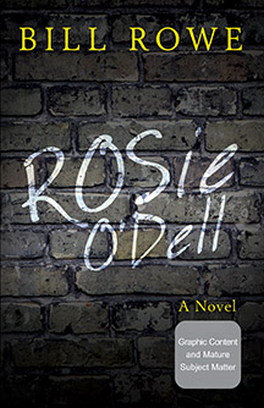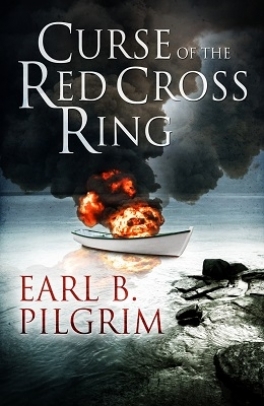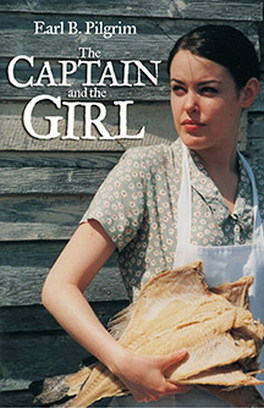The Body on the Beach

Inspired by True Events
Harbour Grace, 1920
Frank Fallon, a veteran policeman, finds himself demoted and transferred back to his hometown. Having left the community in 1905 after being rejected by his first love, Constable Fallon never wanted to return to the place of his childhood. Although they were young budding lovers, Marie Callahan's denial of him for the love of another is still a painful memory.
An opportunity to join the Constabulary in St. John’s had presented him with an escape from a place he never wanted to see again. However, his growing dependence on alcohol while in the city, at a time when Prohibition was cracking down on the illegal sale of booze in the Dominion of Newfoundland, resulted in Fallon butting heads with the Chief of Police. Now, challenged to police a town where only bitter memories exist isn’t going to be easy.
Two weeks into his tenure, an anonymous caller reports a fully-clothed body on Martin’s Beach. The investigation begins, and Constable Frank Fallon must go up against his most difficult case yet. He becomes embroiled in a tale of intrigue surrounding the victim that leads to a shocking and devastating conclusion.
Collins has done an excellent job at creating a story that flows seamlessly. It is well paced, making the story interesting and keeping readers hooked until the very end. The Body On The Beach by Patrick J. Collins is a wonderful read for any armchair detective who enjoys an escape from reality and an opportunity to step back in time.-- Stephanie Collins - Fireside Collections --
"Patrick J. Collins’s writing style is direct and telling. I appreciate the description and context for 1920 Harbour Grace. These descriptions are vivid, and they remain so throughout the narrative. I often wondered as I read about his source for such descriptions. Collins is knowledgeable about the town and area, which gives credibility to the narrative. He makes use of a number of conventions to further his story and introduce the reader to upcoming content and events. The book is logical but not obvious or predictable. I never found myself wondering where that person came in, or how that event could have happened. Collins brings on his characters in a smooth fashion with their own histories. Yet it does not read as history in the blunt sense of that word. For example, the local religious history is told in a neat fashion through the relationships of the various characters. I believe that is a real achievement. He also does well in mixing the present of his story, 1920, with the past. There are many fine human-interest stories here, and they get interwoven in a plausible fashion. The author has a thorough storyline, and he brings all the elements to a conclusion without giving us a Hollywood ending, [but instead in] a crisp yet fulfilling fashion.”-- Dr. Clar Doyle, Professor Emeritus, MUN --
Written by Patrick J. Collins, this novel deals with long-lasting rejection and heartache and the idea that the past is never truly forgotten. While old demons rise, new ones come into play like addiction and job demotion. It’s up to us to make amends, find closure and deal with the torments at hand while taking time to heal. In the midst of Fallon’s downfall, plays out a mysterious and thrilling crime.-- Gina Gill - Tint of Ink --
If you are in the mood for a little history with your mystery, this one's your choice. The writer's familiarity with both the town and its history enlivens this story, which is based on a true and perpetually unsolved incident.-- Northeast Avalon Times --
It's hard to pigeon-hole this novel as any single genre, as it qualifies not only as detective story with questions that range at first from who was it that died, to a series of increasing challenges regarding the details of that death (how and why being foremost, though there's definitely a whodunnit aspect as well).
But that isn't all it is, as it's also a love story -- about the love a man has for a woman from his past as well as a growing romance in his here-and-now.
All of this is complicated (in a good way) by the many historical details author Patrick J. Collins has layered into the book. The biggest of these, and the one that causes the most tension is Prohibition. Being a port town, one that engages in shipping both to and from the US (remember, at this time, Newfoundland was not yet part of Canada, but its own independent dominion), Harbour Grace's location makes it convenient for would-be smugglers.
Even though now and then I'd get a little lost in the crowd of so many characters, the book kept me engaged enough to not fret too much about a missed opportunity for travel. In fact, it allowed me some of the best travels of all, those travels we take via the mind.-- Heidi Greco - Out on the Big Limb --
Harbour Grace nicely invoked in period mystery-- Joan Sullivan - The Telegram --
To say the least, I enjoyed my ramble with Frank Fallon [in The Body on the Beach]. And you know what? I hope Constable Fallon returns tout de suite for another mosey around Harbour Grace.-- Harold Walters - Life on this Planet --
Shopping Cart
You have no items in your shopping cart
| Tax | Price | Qty | Total | |
|---|---|---|---|---|
| No items in the Cart. | ||||
| Sub Total | $0.00 |
|---|---|
| Shipping | $0.00 |
| HST (15%) | $0.00 |
| GST (5%) | $0.00 |
| Total | $0.00 |






















